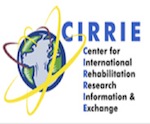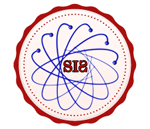


Google Scholar citation report
Citations : 5373
ASEAN Journal of Psychiatry received 5373 citations as per google scholar report
ASEAN Journal of Psychiatry peer review process verified at publons
| Journal Name | ASEAN Journal of Psychiatry (MyCite Report) | ||||
|---|---|---|---|---|---|
| Total Publications | 456 | ||||
| Total Citations | 5688 | ||||
| Total Non-self Citations | 12 | ||||
| Yearly Impact Factor | 0.93 | ||||
| 5-Year Impact Factor | 1.44 | ||||
| Immediacy Index | 0.1 | ||||
| Cited Half-life | 2.7 | ||||
| H-index | 30 | ||||
| Quartile |
|
- Anxiety Disorders
- Behavioural Science
- Biological Psychiatry
- Child and Adolescent Psychiatry
- Community Psychiatry
- Dementia
- Community Psychiatry
- Suicidal Behavior
- Social Psychiatry
- Psychiatry
- Psychiatry Diseases
- Psycho Trauma
- Posttraumatic Stress
- Psychiatric Symptoms
- Psychiatric Treatment
- Neurocognative Disorders (NCDs)
- Depression
- Mental Illness
- Neurological disorder
- Neurology
- Alzheimer's disease
- Parkinson's disease
Abstract
BRINGING IMPACT HOME: REMOTE VERSUS TRADITIONAL ADMINISTRATION FOR COLLEGIATE ATHLETES
Author(s): Ryan Bennett, Kayley Slicer, Claire Stafford, Maya CohenBackground: At the same time as COVID-19 close down our as soon as-perceived “regular” societal function, college athletics have been forced to change how they done concussion baseline screening for his or her student-athletes. The on the spot placed up-concussion evaluation and cognitive test (effect) is a prominent evaluation device used amongst college athletic departments for identifying cognitive baseline functioning of collegiate athletes. The contemporary has a look at aimed to evaluate environmental and supervisory effects of neurocognitive baseline performance and standard symptom opinions among student-athletes who took the impact baseline assessment in a scientific setting or a far off surroundings. Results: The four univariate ANCOVAs for verbal memory (p=0.787), visual memory (p=0.917), visual motor speed (p=0.261), and impulse control (p=0.783) were not significantly different between groups. Additionally, the two Quade ANCOVAs for reaction time (p=0.815) and total symptom score (p=0.886) were not significantly different. Conclusion: The initial findings offer evidence that collegiate athletes can successfully complete their baseline ImPACT assessments in a remote, unsupervised setting without negatively affecting their performance.


























